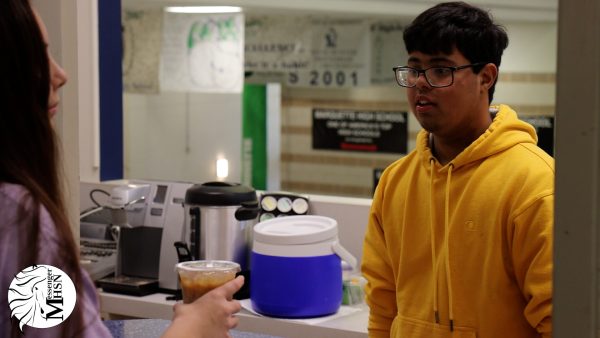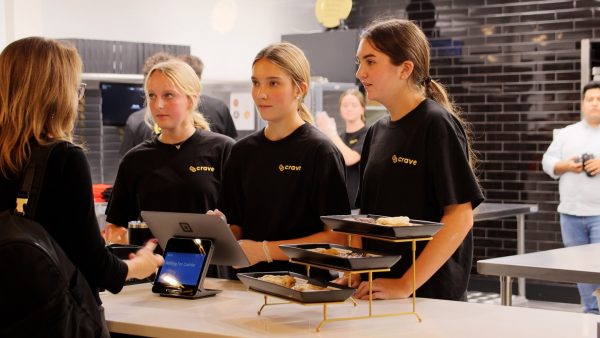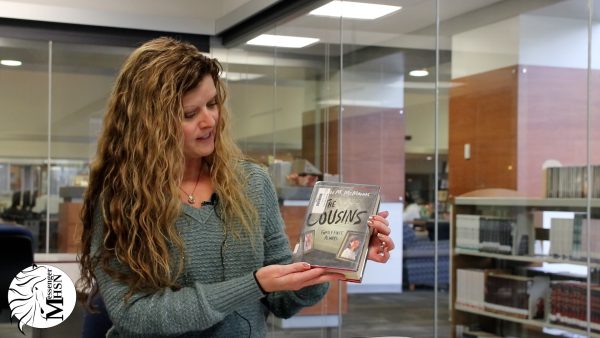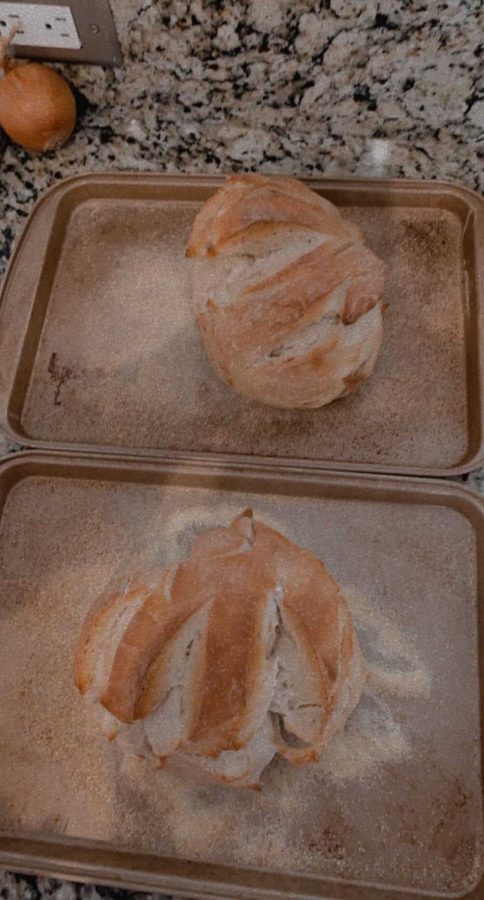Self-Care Plays A Role In Mental Health
Media by Ella Tolbert
Ella Tolbert, junior, enjoys baking bread as a part of her self-care. Above is a photo of her creation.
Ella Tolbert, junior, has always been mindful of self-care, but seriously implemented it last April during the stay-at-home order to better herself.
Tolbert prioritized free time at the end of the school day to relax. Typically, she will pick out a movie to watch after a long day of school and work at least once a week.
Tolbert said she looks forward to baking bread over the weekends. She found that kneading the bread was relaxing and stress free, and overall was a very rewarding activity.
She has also been attempting to get more sleep each night. Normally Tolbert would get little sleep by going to bed late and waking up early, but now gets seven to eight hours each night. She found that she had a better attitude and mood going into her week.
“With corona going on, the stress of school and jobs, self-care is a good thing,” Tolbert said. “This time right now can be stressful, depressing and has lots of unanswered questions, but I think knowing that there is something you can come home to and enjoy, it can improve mental health.”
Susan Robson, child and family therapist, specializes in kids with neurodevelopmental differences like ADHD, autism and learning disorders. She said self-care is the act of participating in activities that are either enjoyable or necessary to reduce stress.
Robson said there are many different examples of self-care that can range from relaxation exercises to positive self-talk messages. When the stay-at-home order was enacted last March, Robson recommended outdoor time as a method of self-care.
“There are so many benefits to being outdoors: the sunshine, the fresh air, the sounds of birds, the breeze,” Robson said. “It all gives our brains information that helps us feel more settled.”
When stress levels increase, people struggle with thinking clearly, being mentally flexible, problem solving and handling their emotions. Self-care activities that help reduce stress can lead to better sleep, a stronger immune system, fewer aches and pains and more energy, Robson said.
Robson said life can get difficult and relaxing self-care activities seem easy and enjoyable, but if people do this excessively to avoid responsibilities, it can result in negative consequences.
“Mental health is not just in our minds,” Robson said.” I often remind myself and others our brains are in our bodies. Self-care is about the whole package.”
Sophomore Principal Dr. Richard Regina is in charge of professional development at MHS, and wrote his dissertation on self-care where he studied trends in teacher self-care, the popularity of it and access to resources.
Dr. Regina said self-care is different for everyone depending on their needs, and every teacher has different needs. Some teachers may need quiet time, 10-minute conversations or a yoga session. Self-care sets one up for success, Dr. Regina said.
Two years ago, Mustangs for Mental Health hosted the first Wellness Day, where students had the opportunity to choose from a plethora of self-care activities. Dr. Regina was an administrative supervisor, as well as a supporter of the idea.
“Remember to take time for yourself, whatever that is,” Dr. Regina said. “Do what you need to do.”
Your donation will support the student journalists of Marquette High School. Your contribution will allow us to purchase equipment and cover our annual website hosting costs. You may become a PATRON by making a donation at one of these levels: White/$30, Green/$50, Blue/$100. Patron names will be published in the print newsmagazine, on the website and once per quarter on our social media accounts.
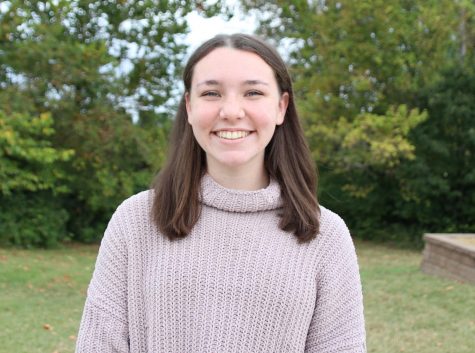
Grace Taylor, junior, is the Social Media Editor of Facebook for the Marquette Messenger. This is her first year on staff. Grace also plays varsity field...




